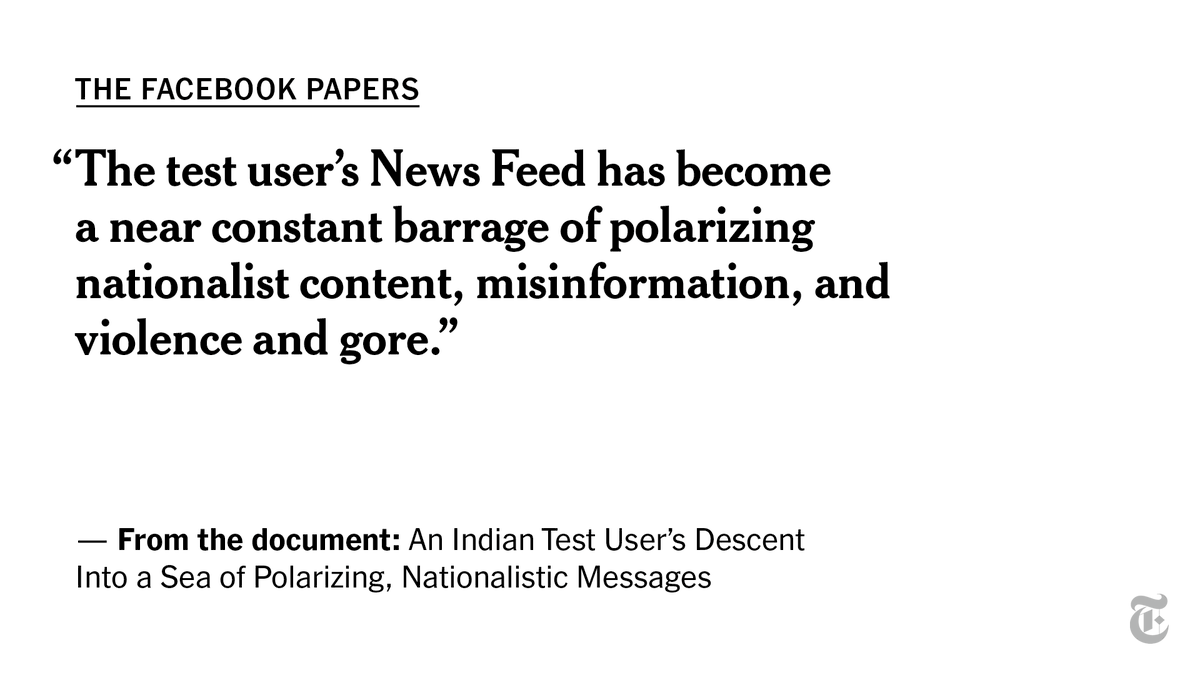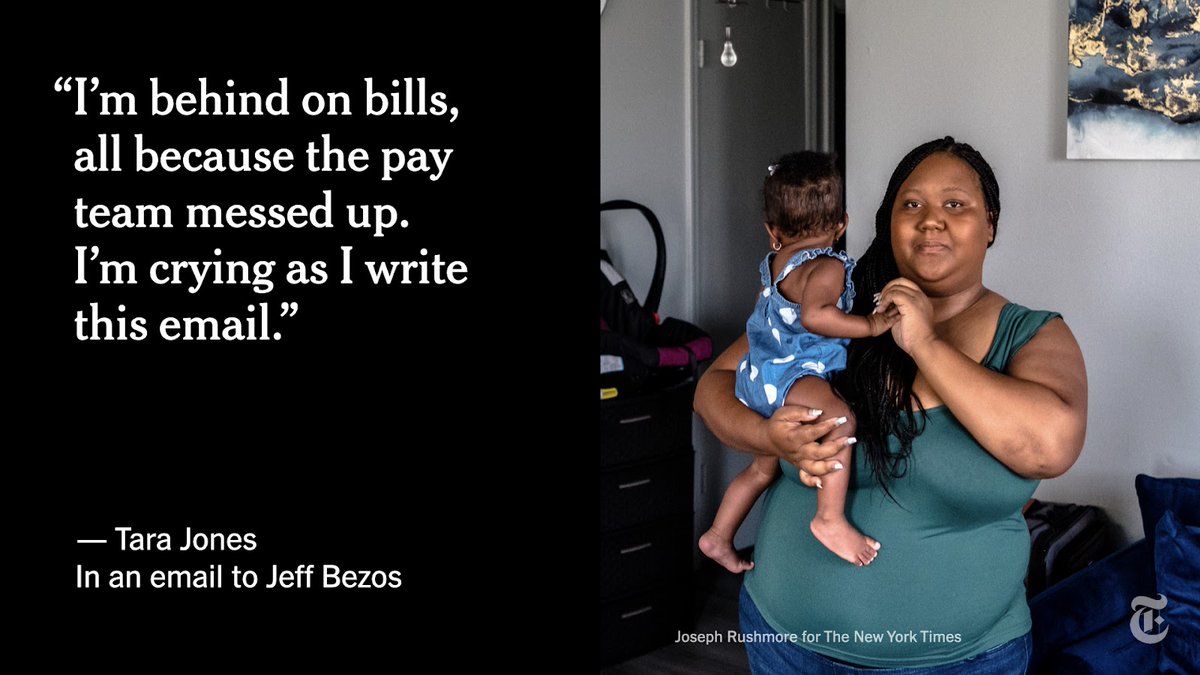
India is Facebook's largest market, where 340 million use the company's social media platforms. Its problems there are an amplified version of the issues it faces around the world, internal documents show. nyti.ms/3vDD6Ty
In 2019, a researcher created a new Facebook account to see what it was like to experience the platform in India, following recommendations generated by Facebook's algorithms.
The result: an inundation of hate speech, misinformation and violence.
nyti.ms/3jsi1Xu
The result: an inundation of hate speech, misinformation and violence.
nyti.ms/3jsi1Xu

Dozens of reports written by Facebook employees provide stark evidence of one of the most serious criticisms levied against the company: It moves into a country without fully understanding its impact, and fails to act on issues once they occur. nyti.ms/3jsi1Xu 

Documents include reports on how bots and fake accounts tied to politicians in India were wreaking havoc on national elections. They also detail how a plan to focus on exchanges between friends and family was leading to more misinformation in the country.
nyti.ms/3jsi1Xu
nyti.ms/3jsi1Xu
The internal documents, obtained by a consortium of news organizations, were part of a larger cache of material called The Facebook Papers collected by Frances Haugen, a former product manager at the company who became a whistle-blower.
Read more: nyti.ms/3jsi1Xu
Read more: nyti.ms/3jsi1Xu
• • •
Missing some Tweet in this thread? You can try to
force a refresh







